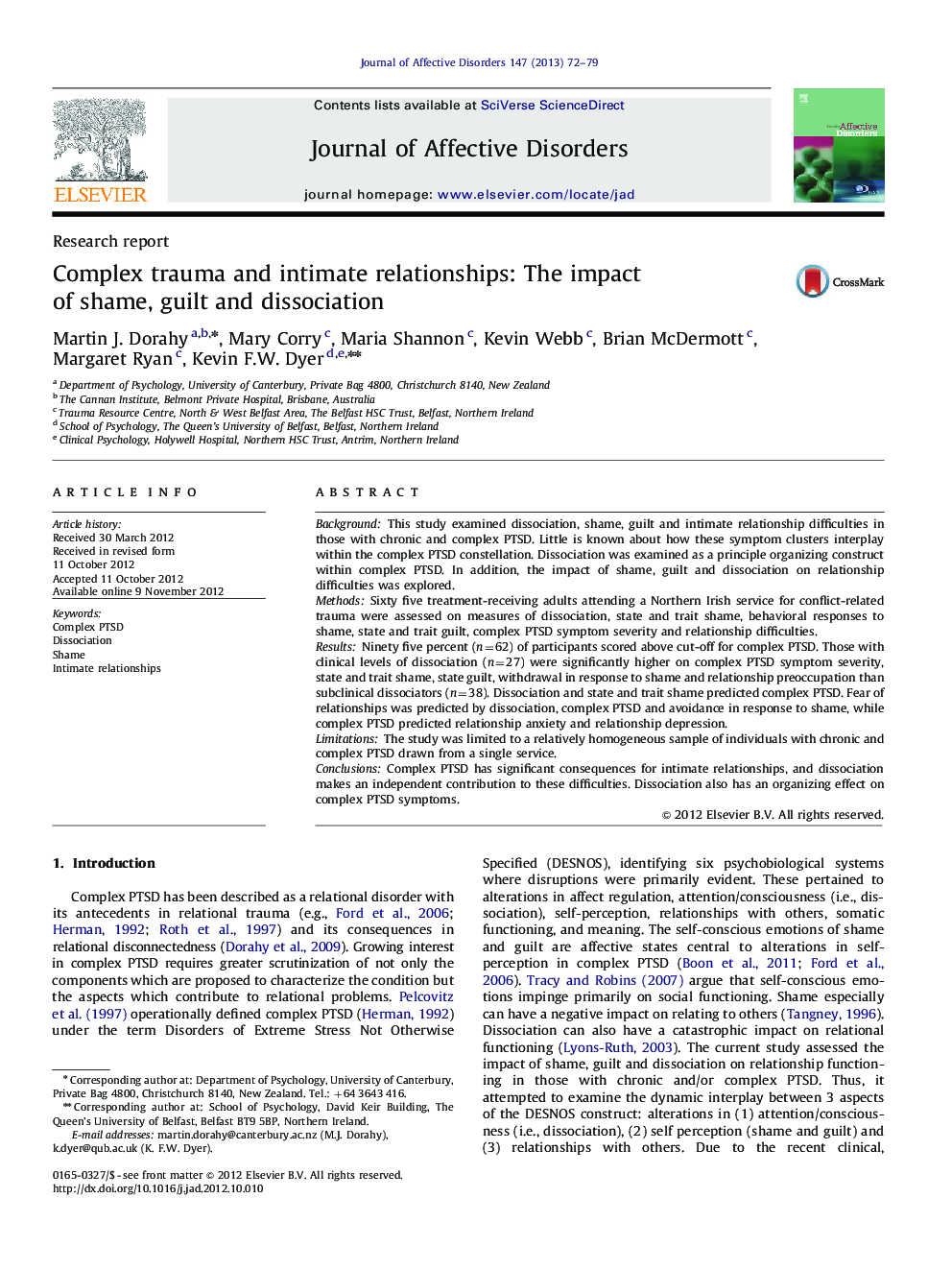| کد مقاله | کد نشریه | سال انتشار | مقاله انگلیسی | نسخه تمام متن |
|---|---|---|---|---|
| 6234728 | 1608175 | 2013 | 8 صفحه PDF | دانلود رایگان |
BackgroundThis study examined dissociation, shame, guilt and intimate relationship difficulties in those with chronic and complex PTSD. Little is known about how these symptom clusters interplay within the complex PTSD constellation. Dissociation was examined as a principle organizing construct within complex PTSD. In addition, the impact of shame, guilt and dissociation on relationship difficulties was explored.MethodsSixty five treatment-receiving adults attending a Northern Irish service for conflict-related trauma were assessed on measures of dissociation, state and trait shame, behavioral responses to shame, state and trait guilt, complex PTSD symptom severity and relationship difficulties.ResultsNinety five percent (n=62) of participants scored above cut-off for complex PTSD. Those with clinical levels of dissociation (n=27) were significantly higher on complex PTSD symptom severity, state and trait shame, state guilt, withdrawal in response to shame and relationship preoccupation than subclinical dissociators (n=38). Dissociation and state and trait shame predicted complex PTSD. Fear of relationships was predicted by dissociation, complex PTSD and avoidance in response to shame, while complex PTSD predicted relationship anxiety and relationship depression.LimitationsThe study was limited to a relatively homogeneous sample of individuals with chronic and complex PTSD drawn from a single service.ConclusionsComplex PTSD has significant consequences for intimate relationships, and dissociation makes an independent contribution to these difficulties. Dissociation also has an organizing effect on complex PTSD symptoms.
Journal: Journal of Affective Disorders - Volume 147, Issues 1â3, May 2013, Pages 72-79
